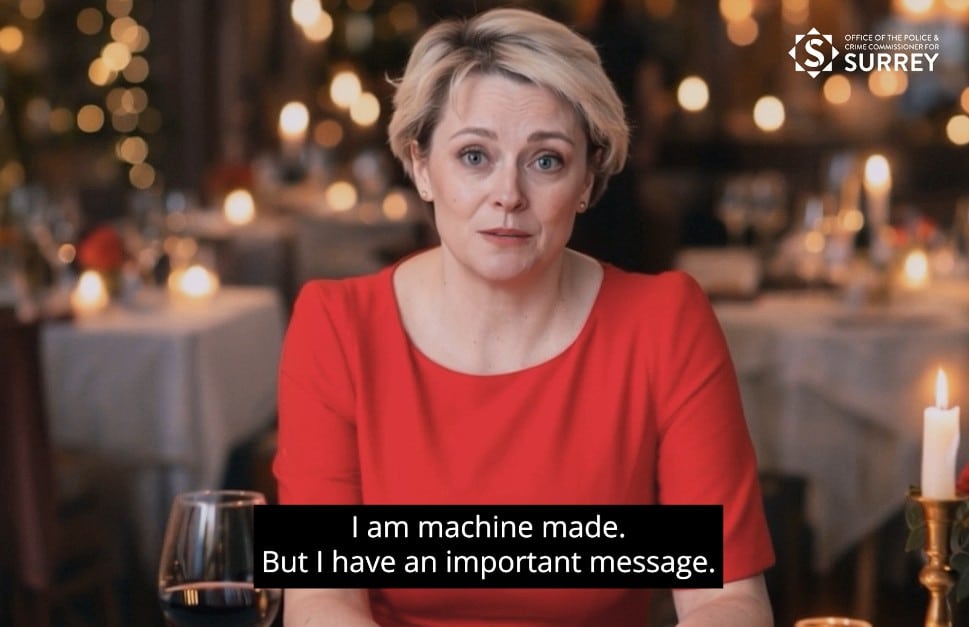Critical work is currently being undertaken on the Right Care, Right Person model, which will change the way police respond to some incidents that relate to mental health.
A National Partnership Agreement has been jointly produced by the Home Office, Department of Health and Social Care and NHS England, Association of Police and Crime Commissioners, and the National Police Chiefs’ Council.
It comes after his Majesty’s Inspectorate for Constabulary and Fire & Rescue Services (HMICFRS) highlighted significant concerns for police resources being increasingly diverted from their core responsibilities, instead responding to non-crime mental health demand, in 2017.
The report raised concerns for vulnerable people unfairly denied appropriate medical support due to a lack of health-based places of safety and timely mental health assessments, the use of police custody as a place of safety, and the inappropriate nature of conveyance of those suffering a mental health crisis in a police vehicle. Currently there is also a risk of those suffering a mental health crisis feeling criminalised by the response they receive.
The Right Care, Right Person National Partnership Agreement aims, first and foremost, to tackle these urgent challenges.
The model was first implemented in Humberside. In that force area, call takers in the contact centre triage calls relating to mental health by assessing the circumstances using a standardised toolkit and decide whether police should attend, or whether another agency is better trained, equipped and experienced to do so.
In Humberside, Right Care, Right Person was implemented in four stages between May 2020 and November 2021.
There will always be a role for the police to play in responding to certain mental health related incidents. However, police across the country are increasingly becoming involved when they are not the best-placed people to do so. Officers are also often not able to handover to the right agencies in a timely way, causing greater distress for individuals in crisis.
Police in Humberside, where this model is already in place, have given a series of examples of where police may not be the best agency to respond. These might include:
- Mental health services reporting that an individual hadn’t attended their appointment the previous day
- Call from emergency department of an acute hospital regarding a male who had left before being discharged with a cannular in his hand. Police were asked to locate him
- Section 136 of the Mental Health Act used to detain someone in crisis. Police attend the 136 suite but couldn’t handover to clinicians as no one free to accept. Police remained for 12 hours
- Police asked to convey patients (from acute hospital to mental health facilities)
The Right Care, Right Person model requires the police to work in collaboration with partner agencies, including the NHS and local health bodies, as well as local authorities and others. It is crucial to build strong partnerships to implement this successfully.
Each police force is operationally independent, and the implementation in each local area rightly may differ depending on the needs of that local population, but also the local working practices and relationships in place in those areas.
The timeframes of the roll-out may vary in different areas.
In Surrey, we are seeing a significant increase in both the number of S136 Mental Health Act detentions and, correspondingly, the amount of time it takes for police to hand incidents over to appropriate mental health services.
In February, a total of 515 hours of policing time was spent on incidents related to mental health – the highest number ever recorded by this Force.
In that same month, more than 60 people were detained while they were in crisis. The detentions were mostly in police vehicles as a result of ambulance shortages.
When looking at the wider picture locally, over the past seven years, the number of hours police in Surrey are spending with people in crisis has almost trebled.
You can find some of our press releases on Right Care, Right Person here:
- Commissioner says government mental health announcement must act as a turning point for policing
- Commissioner’s warning as crisis in care ‘takes officers off the frontline’
- Commissioner backs calls for change on mental health response – after warning thousands of police hours are spent dealing with people in crisis
- “We shouldn’t be asking hard-pressed police to serve as healthcare workers”: Commissioner calls for improvements to mental health care
Latest News
Police and Crime Commissioner creates another deepfake video to raise awareness of romance fraud

"Don't let criminals break your heart emotionally and break you financially." This is the warning from Police and Crime Commissioner, Lisa Townsend, in the run up to Valentine's Day this weekend.
Police teams will be resourced to take the fight to criminals, says Commissioner as council tax rise approved

The Commissioner's proposal for the precept, the part of council tax that goes towards policing, has been approved this afternoon.
PCC urges public to Question EVERYTHING after Surrey victim loses £20,000 of life savings through deepfake video

A Surrey resident has lost £20,000 after he was tricked into a scam investment by a deepfake video of TV star ‘Martin Lewis’.